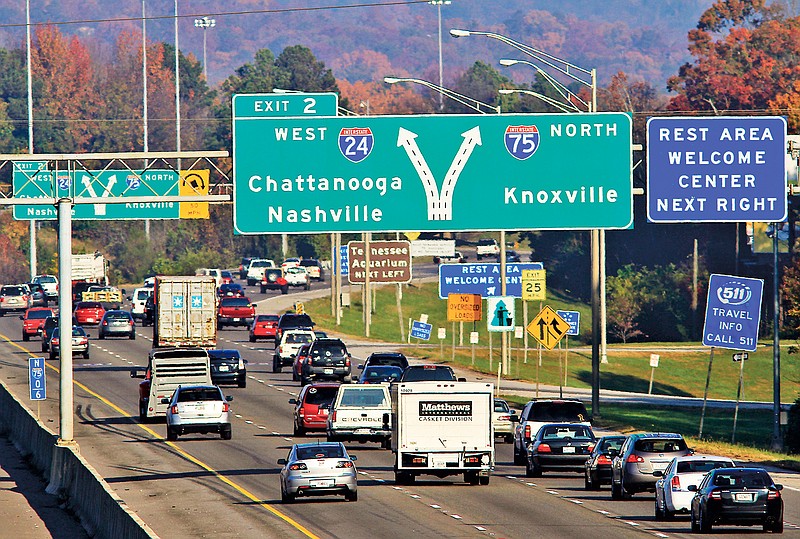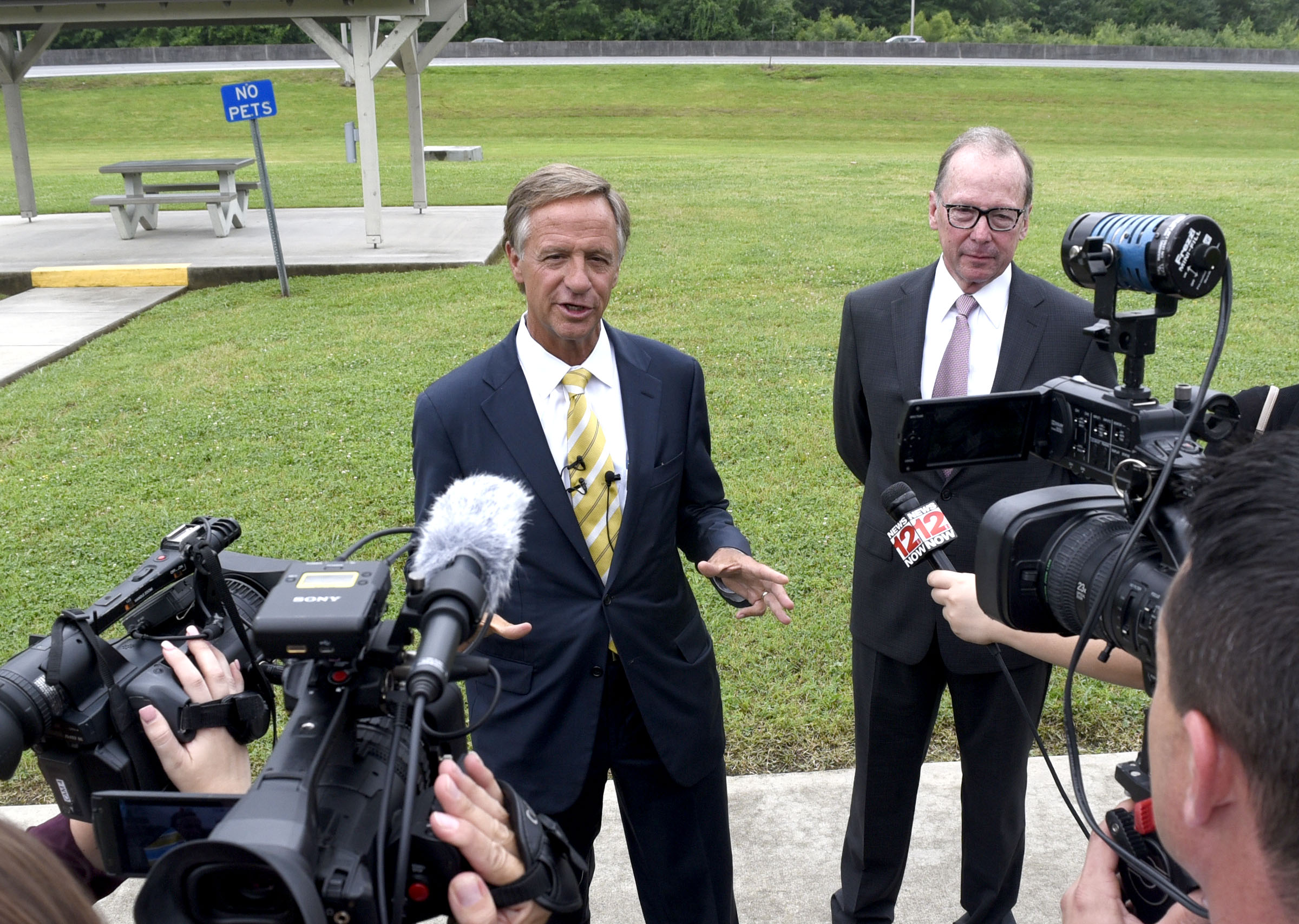NASHVILLE - Tennessee transportation officials hope to have bids ready to advertise in the spring and start work by summer on an estimated $70 million project aimed at easing the sometimes deadly Chattanooga traffic bottleneck at the intersection of interstates 24 and 75.
"It's probably the worst intersection we got in the state at this moment," Transportation Commissioner John Schroer told Gov. Bill Haslam on Wednesday during his department's annual budget presentation to the governor.
Schroer said he believes the project will probably take three years - "if things go right."
The commissioner said the I-24/I-75 fix "will be one of the most expensive projects that we will do" in projects receiving funding under the state IMPROVE Act passed last spring by Tennessee lawmakers.
But while the local project's estimated cost is high, it's less than the state had to spend several years ago to straighten out a similar intersection of I-40 and I-240 in Memphis.
"It's not dissimilar to our I-40/240 project in Memphis, which was a $120 million-some-odd-dollar project," Schroer said. "We completed that six months ahead of time."
Schroer said the department has developed experience with large, expensive interchanges.
Approved at the urging of Haslam, business leaders, trucking firms and local officials across the state, the IMPROVE Act raised fuel taxes for the first time in nearly 30 years.
The tax on gas per gallon is rising 6 cents over a three-year period to 27.4 cents and diesel is rising by 10 cents to 28.4 cents. Several non-highway taxes were cut, including the state's sales tax on food.
Haslam promised the money will let Tennessee initiate or accelerate work on 962 specific projects totaling some $10.5 billion over coming years. The I-24/I-75 interchange wouldn't have gotten off the drawing board for years without it, Haslam and local legislators said last spring.
It's one of an estimated 23 Hamilton County projects estimated to cost some $600 million affected by the legislation.
Other projects include widening various portions of I-24 and I-75.
Schroer is proposing a nearly $2.1 billion project for fiscal year 2019, half of which is federal money.
Responding to questions from Haslam, Schroer said that despite Tennessee's passage of the IMPROVE Act, infrastructure funding remains an issue in Tennessee. That road leads to Washington, he said.
While President Donald Trump campaigned on a $1 trillion infrastructure spending program, "they keep pushing it back," said Schroer, the current president of the American Association of State Highway and Transportation Officials, which pushes for transportation help from Washington.
"I don't think we have been funding infrastructure in a manner in which we should, and in transportation we have not changed federally since 1993," Schroer said.
In fact, Schroer and aides warned that Tennessee could lose $178 million annually in several years unless Congress addresses expected shortfalls in the next several years of the federal FAST Act, the last federal funding bill that passed.
"We are going to look at how we do that, or there is going to be a whole lot of burden on the state by themselves," Schroer said.
Following the presentation, Haslam agreed with Schroer's concerns about adequate funding down the road, given federal inaction and the fact that fellow Republicans in the the Tennessee Legislature stripped out Haslam's plan to peg the gas tax to the rate of inflation.
"I think that's the reality," the governor said of Schroer's concerns. "I don't know if that's five years from now or eight years down the road. I can't figure that out. I don't think we've permanently solved the funding issue."
Vehicles continue getting better mileage and roads are costing more, the governor noted.
While states with significant road debt are counting on federal help, Haslam said those "waiting for Washington to bail them out are going to be waiting a while."
Meanwhile, Trump's idea of boosting federal spending calls for public-private partnerships involving issuing bonds and paying them off by use of toll roads and the like and won't get mileage in Tennessee, Schroer said.
That's because Tennessee doesn't use toll roads, Schroer said, noting in most areas of the state there's not enough vehicles to make it viable. The state, meanwhile, is one of only a handful of states that pays for transportation projects in cash as it proceeds on them.
The commissioner said of the 962 new or accelerated projects envisioned under Tennessee's IMPROVE Act, 288 are now underway. Twenty are in the construction phases. Ten bridge projects have already been completed, according to the department.
Contact staff writer Andy Sher at asher@timesfreepress.com or 615-255-0550. Follow him on Twitter @AndySher1.

